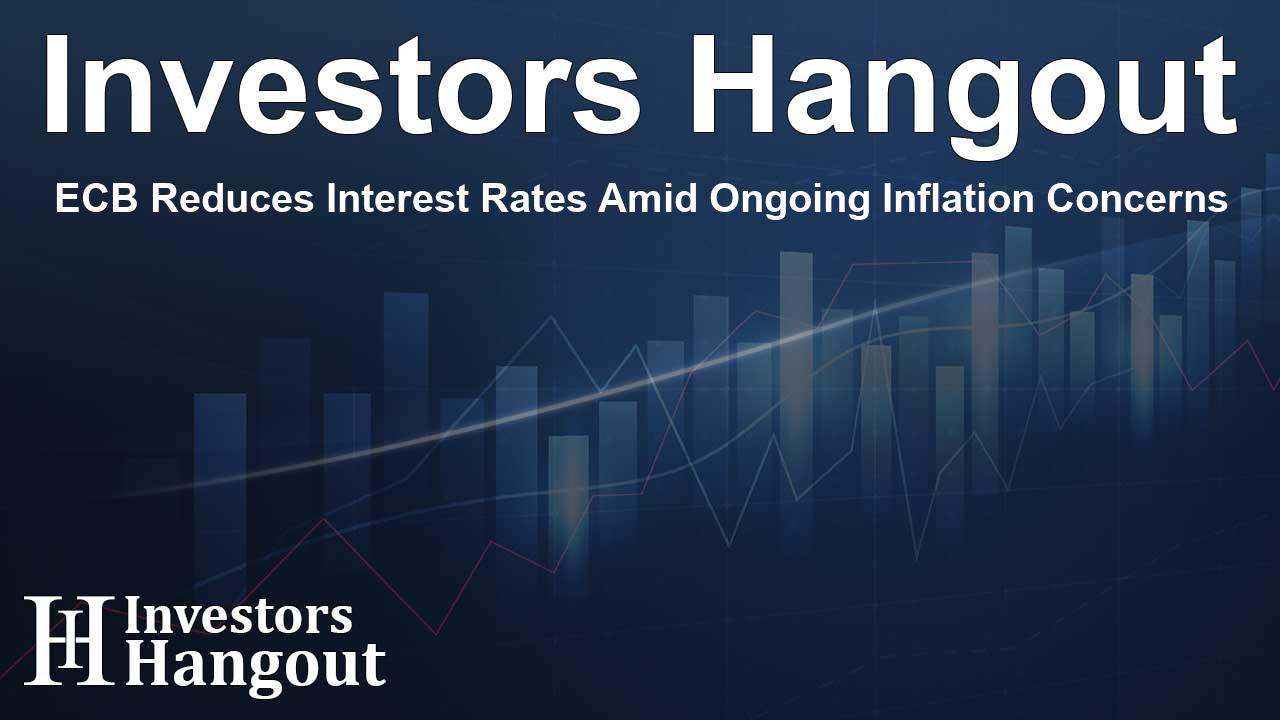ECB Reduces Interest Rates Amid Ongoing Inflation Concerns

ECB's Recent Interest Rate Decision
The European Central Bank (ECB) has made a pivotal move by lowering interest rates once again, highlighting their ongoing efforts to manage economic conditions. This decision aligns with market expectations, reflecting a cautious approach amid persistent inflationary challenges. The ECB's recent monetary policy meeting underscored the complexities of current economic dynamics as the central bank navigates through challenging waters.
Impact of Inflation on Monetary Policy
Inflation remains a pressing concern, influencing the ECB's strategy towards interest rates. Despite the recent rate cuts, the bank cautioned about the potential for stubborn inflation, which could complicate the path to further reductions. The interplay between stimulating economic growth and controlling inflation is critical as the ECB strives to strike a balance that supports recovery while addressing inflationary pressures.
Significance for Borrowers and Investors
The decision to slash interest rates could have significant implications for borrowers and investors alike. Lower rates can stimulate borrowing, which may positively impact consumer spending and business investments. However, the ongoing inflationary pressures may temper expectations for an extended period of low borrowing costs. Therefore, both borrowers and investors should stay informed about potential fluctuations in economic policies and market conditions.
Future Outlook for the ECB
Looking ahead, the ECB faces a delicate challenge. The current landscape requires careful monitoring of inflation trends and economic indicators to inform future decisions. Depending on how inflation behaves in the coming months, the ECB may need to adjust its strategy accordingly to ensure sustained economic stability.
Conclusion
The ongoing adjustments to interest rates by the European Central Bank reflect an adaptable approach to unprecedented economic challenges. As they navigate through these complexities, the significance of their decisions resonates through various sectors of the economy. Stakeholders are advised to remain attentive to the evolving economic landscape, as the implications of these measures will continue to unfold in the near future.
Frequently Asked Questions
What led to the ECB's decision to cut interest rates?
The ECB cut interest rates in response to ongoing economic conditions and persistent inflation pressures affecting the economy.
How do interest rate cuts impact consumers?
Interest rate cuts lower borrowing costs, encouraging consumer spending and investments, which can boost economic growth.
Are the rate cuts likely to continue?
While rate cuts have occurred, the persistent inflation may hinder future reductions, making the outlook cautious.
Who benefits most from lower interest rates?
Borrowers generally benefit from lower rates as they pay less interest on loans, while investors may find opportunities in a stimulating market.
What should stakeholders watch for in future ECB meetings?
Stakeholders should monitor inflation trends and economic indicators as they will guide the ECB's future monetary policy decisions.
About Investors Hangout
Investors Hangout is a leading online stock forum for financial discussion and learning, offering a wide range of free tools and resources. It draws in traders of all levels, who exchange market knowledge, investigate trading tactics, and keep an eye on industry developments in real time. Featuring financial articles, stock message boards, quotes, charts, company profiles, and live news updates. Through cooperative learning and a wealth of informational resources, it helps users from novices creating their first portfolios to experts honing their techniques. Join Investors Hangout today: https://investorshangout.com/
Disclaimer: The content of this article is solely for general informational purposes only; it does not represent legal, financial, or investment advice. Investors Hangout does not offer financial advice; the author is not a licensed financial advisor. Consult a qualified advisor before making any financial or investment decisions based on this article. The author's interpretation of publicly available data shapes the opinions presented here; as a result, they should not be taken as advice to purchase, sell, or hold any securities mentioned or any other investments. The author does not guarantee the accuracy, completeness, or timeliness of any material, providing it "as is." Information and market conditions may change; past performance is not indicative of future outcomes. If any of the material offered here is inaccurate, please contact us for corrections.